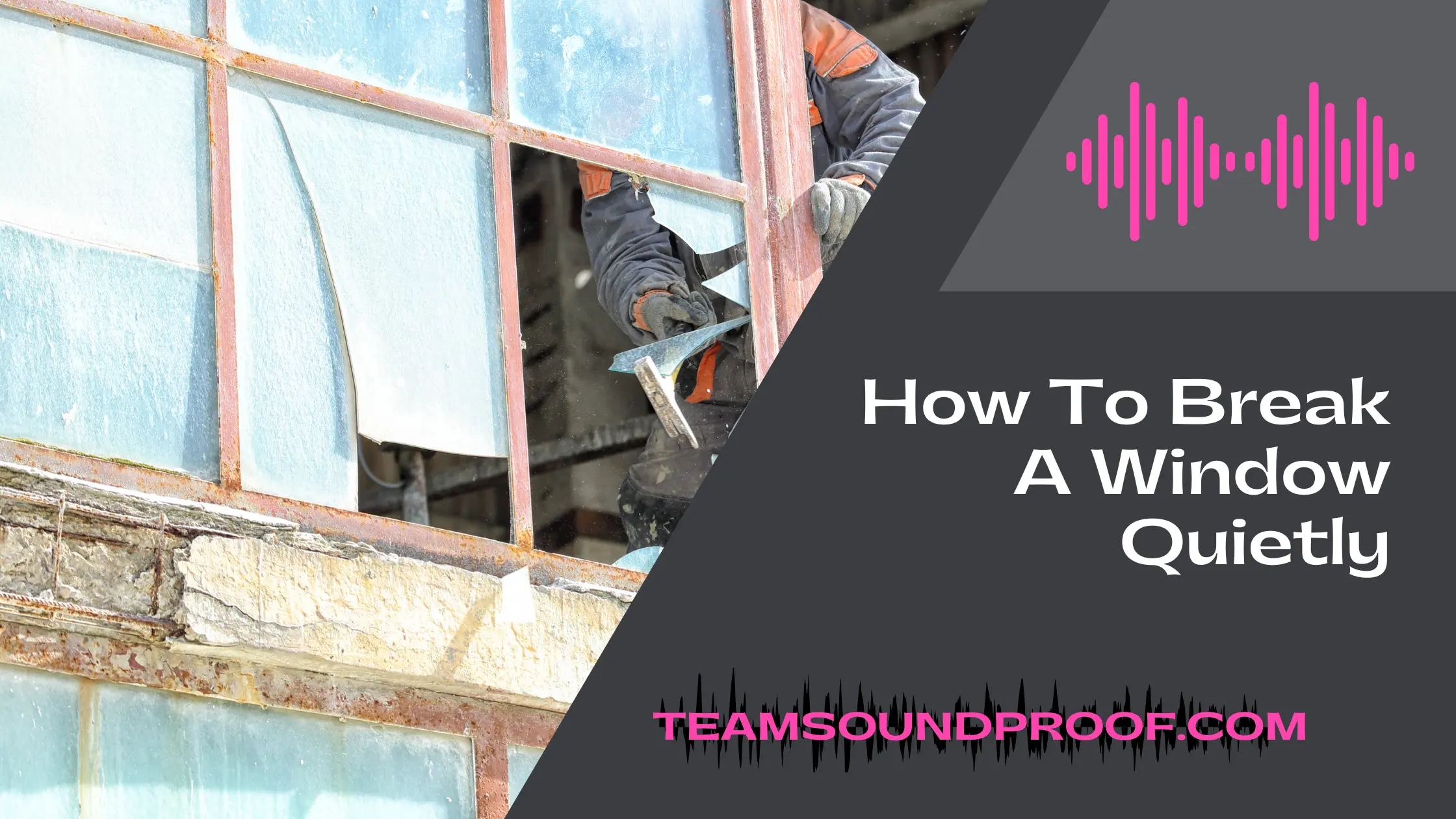Traveling can be a great way to relax, unwind, and take in everything the world has to offer. But if you’re staying in a hotel room that’s too close to noisy streets or other rooms, it can quickly become an unpleasant experience. Luckily there are steps hotels may have taken and travelers should keep in mind to ensure your stay is as peaceful and quiet as possible: soundproofing! In this blog post we will explore various ways of making Are Hotel Rooms Soundproof so that you can get a good night’s rest without interruption.
Are Hotel Rooms Soundproof?
Yes, they can be. The most important thing you should know is that there are many different kinds of materials used for soundproofing purposes. Some are more effective than others and it is up to you to choose the best ones for your hotel rooms.
For instance, some of the best materials used in hotels include acoustic panels, silencers and ceilings with a high density of sound absorbing material. In addition to this, other effective noise barriers can consist of casement windows or air vents strategically placed on walls and ceilings. On top of all this, certain types of glass in doors and windows also help minimize all the sounds produced inside these rooms. Finally, long curtains placed along both sides of the glass will help further absorb any sound waves that enter or exit the room.
If you are looking for a more powerful soundproofing solution, there are also several high-tech materials on the market that can help further minimize unwanted noise in your hotel rooms. For example, some of these materials utilize acoustic foam and advanced baffles to absorb sounds at multiple frequencies. Other innovative solutions may involve adding an extra layer of insulation to reduce any vibrations that might cause unwanted noise.
Ultimately, the key to ensuring your hotel rooms are fully soundproof is to carefully assess all your needs and choose the right materials accordingly. By doing so, you can create a peaceful and relaxing environment for guests no matter what kind of noise they might be producing inside these rooms.
What Factors Can Affect the Soundproofing of A Hotel Room?
There are several factors that can impact the soundproofing of a hotel room, including the type of materials used, the location and layout of the room, and any mechanical or electrical features included in its design. Factors such as air vents and windows can also play an important role in minimizing noise levels, as these openings often act as additional pathways for sound to enter or exit a room.
One key factor to consider is the quality of materials used for soundproofing purposes. This includes both hard surfaces like walls and ceilings, as well as soft surfaces like acoustic panels and other types of padding. The density and thickness of these materials can also make a big difference when it comes to blocking out unwanted sounds.
Another important consideration is the location and layout of the room. For example, a hotel room that opens up directly to an outdoor area or busy street will likely be more prone to noise from outside sources. In contrast, a room located in a quiet corner of the building might be less affected by noise from neighboring spaces or common areas.
Beyond these factors, other design considerations can also influence the soundproofing of a hotel room. For instance, some rooms may include features like double-paned windows or additional insulation to further insulate against any unwanted noise. Likewise, mechanical systems such as heating and cooling units may also play a role in determining how well sound travels through different parts of the building.
In order to fully optimize the soundproofing of your hotel rooms, it is important to take all of these factors into account. By understanding the unique needs and challenges that come with your hotel environment, you can create a space that provides both comfort and peace for guests.
The Benefits of A Soundproof Hotel Room:
Some of the key benefits of a soundproof hotel room include better sleep quality, reduced stress levels, and improved overall health. These spaces are typically designed to provide a quiet and relaxing environment that can help promote restful sleep and minimize outside distractions. Additionally, many soundproof hotel rooms also incorporate advanced materials and design features that help absorb vibrations or reduce noise from external sources.
This combination of factors can have a number of positive effects on both physical and mental health. For example, research has shown that poor sleep quality is linked to higher rates of stress and anxiety as well as compromised immune function. By minimizing noise disruptions in your hotel rooms, you can help ensure that guests are able to get the rest they need for optimal performance during their stay.
In addition to improved sleep, soundproof hotel rooms can also help reduce stress levels for guests. This is due in part to the ability of these spaces to minimize ambient sounds and create a soothing atmosphere through high-quality materials and design features. As a result, people may experience less anxiety while they are staying in your hotel and feel more relaxed overall.
Finally, soundproofing can also have positive implications for guest health by minimizing exposure to potentially harmful noises or vibrations. For example, some hotels are starting to use air conditioning units that produce lower frequencies of noise as a way to improve comfort without increasing disruptions. By taking such measures into account in your own building design, you can help ensure that guests stay safe and healthy during their stay.
Are There Any Disadvantages to Having a Soundproof Hotel Room?
While there are many benefits to having soundproof hotel rooms, there can also be some potential drawbacks or disadvantages. One of the main challenges is that these spaces may require additional investment in terms of materials and design features. For instance, adding extra insulation or installing thicker windows may increase construction costs, which could make these rooms less affordable for some individuals.
In addition, some guests may not prefer the more isolated environment provided by soundproof hotel rooms. This can especially be true for younger travelers who may want to connect with friends online or socialize more frequently during their stay. As a result, it is important to provide options for both sound-sensitive and social guests so that you can cater to the needs of all types of visitors.
It is also important to provide additional features or amenities such as free Wi-Fi, in-room charging stations, or areas for socializing to ensure that all guests are able to have a positive experience. Another potential disadvantage of soundproof hotel rooms is the fact that these spaces often feature more advanced technology and materials than other parts of the hotel.
This can lead to costlier maintenance and repair issues if these components are not properly managed or maintained. For example, some guest rooms may require more frequent cleaning due to increased debris from materials like insulation. Overall, the benefits of soundproof hotel rooms are likely to outweigh any potential drawbacks for most travelers.
By focusing on high-quality materials and innovative design features, you can create a space that provides guests with the peace and quiet they need for optimal rest and relaxation. At the same time, you can also consider ways to cater to social travelers by including additional common areas or providing options for connecting online during their stay.
Conclusion:
Hotel rooms are not soundproof, but they are designed to muffle outside noise so you can rest peacefully. If you’re a light sleeper or need complete silence to fall asleep, bring earplugs or request a room away from the elevators, ice machines, and other sources of noise. You can also try using a white noise machine to drown out any unwanted sounds.
Frequently Asked Questions
What Are Some Common Ways that Hotels Soundproof Their Rooms?
One common way that hotels soundproof their rooms is by using heavy-duty walls, ceilings, and floors to help block out outside noises. They may also use special acoustic materials in the walls, ceilings, and floors to absorb sounds and reduce echoes. It’s also common for hotels to use soundproof windows and doors, as well as heavy curtains or blackout shades.
What Can I Do if My Hotel Room Is Not Soundproofed Enough?
There are a few things you can try if your hotel room is not soundproofed enough. You may want to consider bringing earplugs or a white noise machine to help block out outside noises. If there is construction going on nearby, you can also ask the hotel staff to move you to another room that is further away from the noise. And if possible, try moving your bed away from windows and doors to reduce disturbances from outside sources such as traffic, people talking in the hallway, or other guests entering and exiting the room.
What Are Some Tips for Minimizing Noise in Hotel Rooms if You're a Light Sleeper?
If you’re a light sleeper, try using earplugs or a white noise machine to help block out unwanted sounds. You may also want to ask for an upgrade to a room with higher-quality insulation and soundproofing or request to be placed in a quiet zone if one is available at your hotel. Additionally, it can be helpful to avoid staying in busy areas of the hotel, like near elevators or public spaces like the lobby.




